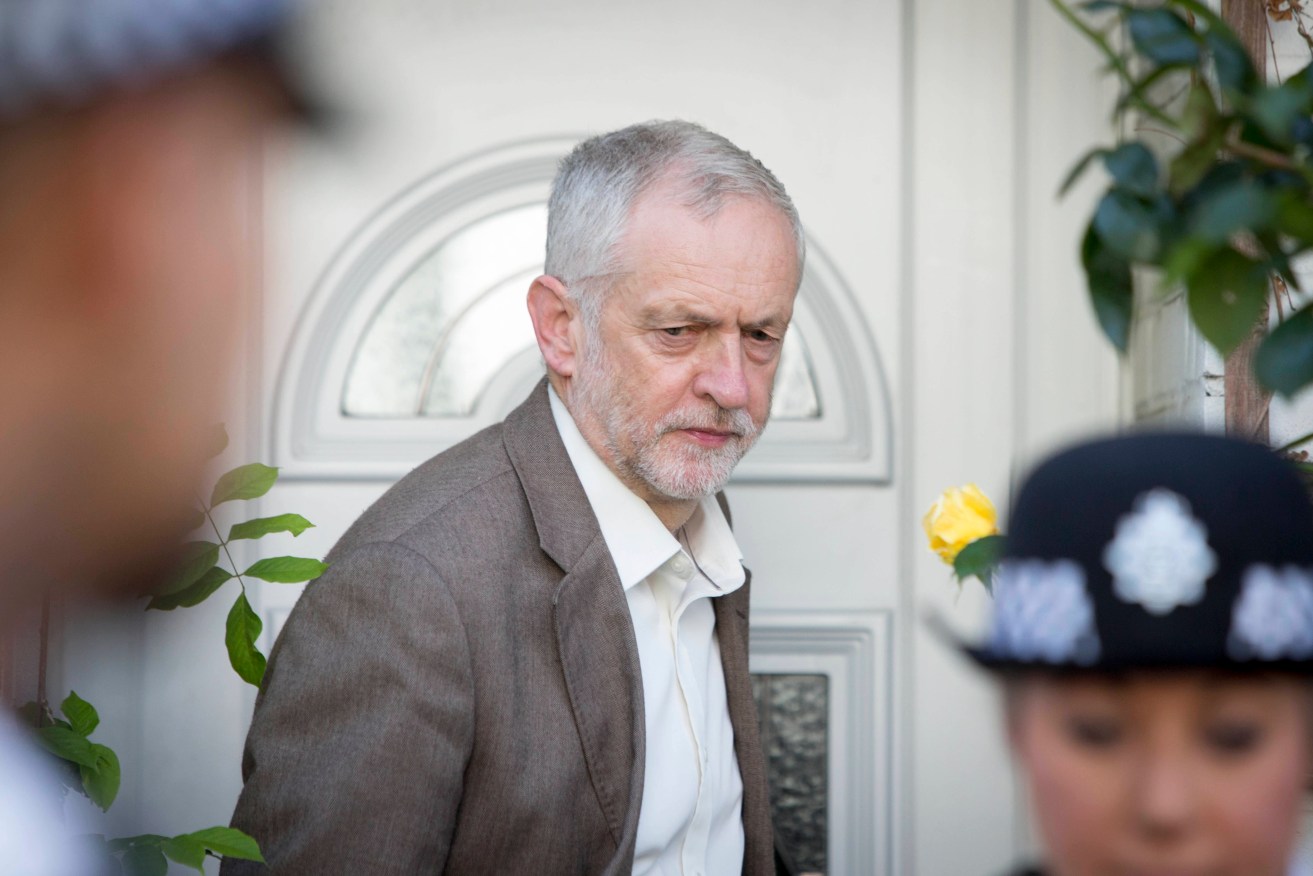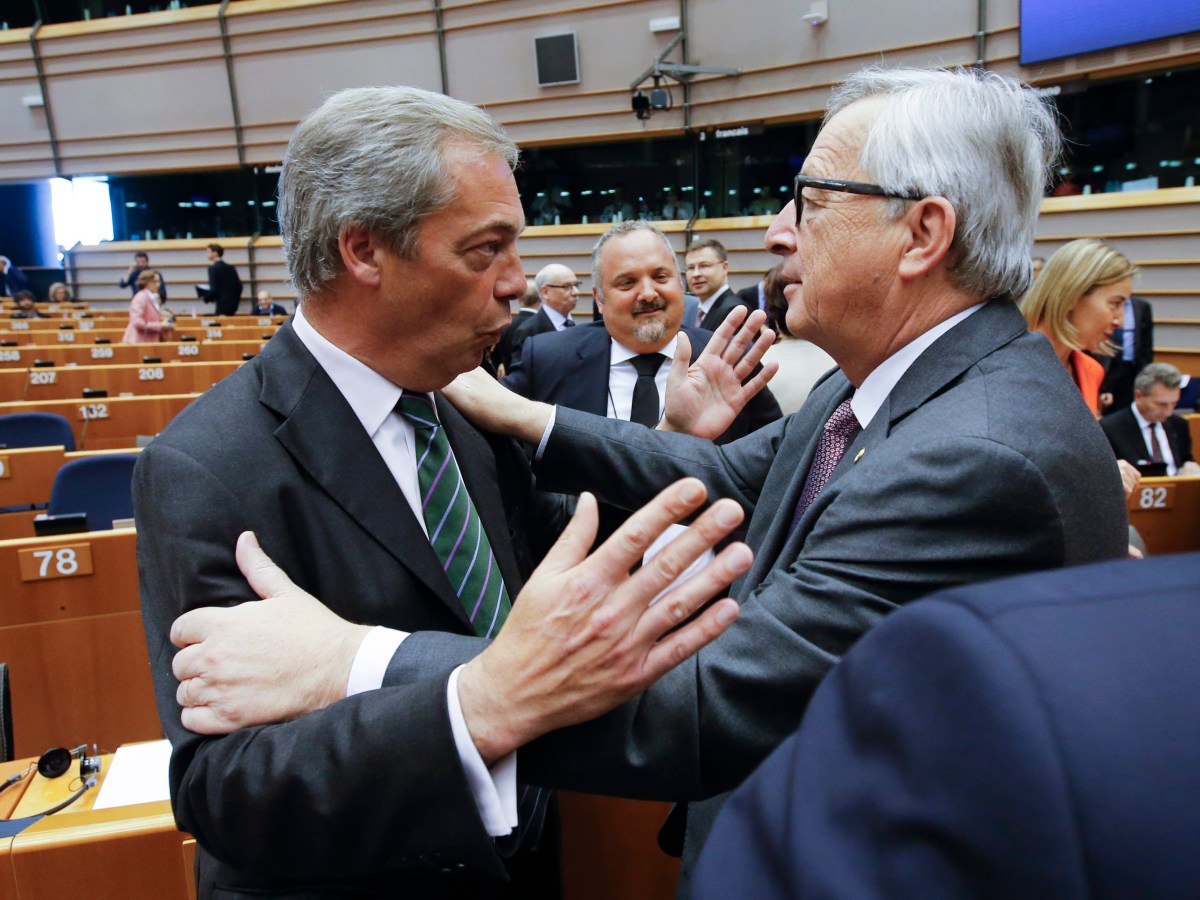Corbyn digs in after Labour MPs declare no confidence
Britain’s Brexit political crisis has deepened after MPs in the opposition Labour Party passed a motion of no confidence in its leader Jeremy Corbyn by an overwhelming margin – but Corbyn said he would not resign.

Labour Party leader Jeremy Corbyn leaving his home in north London before most of his MPs voted to oust him amid Labour's escalating civil war. Photo: Rick Findler, PA Wire.
In the non-binding vote, Labour MPs voted 172 to 40 against Corbyn, the 67-year old left-wing activist behind a socialist rebranding of Britain’s main opposition party.
The motion was proposed in the wake of Britain’s vote to leave the European Union and backed by many who felt Corbyn had not campaigned hard enough to keep the country inside the EU and that he would not be able to win a future national election.
“It is now clear that Jeremy Corbyn has lost the support of the overwhelming majority of the Parliamentary Labour Party,” Labour lawmaker Wes Streeting said.
“He’s now just got to do the decent thing and accept he is not up to the job and resign with dignity so we can move on and draw a line under this sorry episode.”
As Britain grapples with its worst political crisis of modern times, the success or failure of Labour’s coup attempt against its own leader will shape the country’s post-Brexit relationship with the EU, the world’s biggest trading bloc.
After the Brexit vote both of Britain’s major political parties are in turmoil and sterling and share prices have tumbled.
Prime Minister David Cameron has promised to resign, triggering a leadership contest in his ruling Conservative Party.
Though widely expected, the Labour vote of no confidence underscores the depth of opposition Corbyn faces. The non-binding vote, however, does not automatically trigger a leadership election.
Corbyn, who voted to leave the EU in a 1975 referendum, said he would not resign as leader.
“I was democratically elected leader of our party for a new kind of politics by 60 per cent of Labour members and supporters, and I will not betray them by resigning,” he said.
“Today’s vote by MPs has no constitutional legitimacy.”
Parliamentary colleagues have called on Corbyn to quit after more than 20 of his policy team publicly resigned.
He was laughed at when called to make a speech in parliament on Monday, before attending a private meeting where more than a dozen MPs pleaded with him to quit.
His opponents in the Labour Party question whether he can ever win over voters in the party’s heartlands.
Corbyn has previously said he would stand again if the party did call a leadership contest. A leadership contest would have to take place if 51 or more Labour MPs pledge their support for an alternative candidate.
But Corbyn retains support among many party members and registered supporters outside parliament and they help to elect any new leader.
Meanwhile, European leaders have told Britain to act quickly to resolve the political and economic chaos unleashed by its vote to leave the Union, a move the IMF said could put pressure on global growth.
Financial markets recovered slightly overnight after the result of Thursday’s referendum wiped a record $US3 trillion ($A4.09 trillion) off global shares and sterling fell to its lowest level in 31 years against the dollar, but trading was volatile and policymakers said they would take all necessary measures to protect their economies.
British Finance Minister George Osborne, whose attempt to calm markets had fallen on deaf ears on Monday, said the country would have to cut spending and raise taxes to stabilise the economy after a third credit ratings agency downgraded its debt.
Firms have announced hiring freezes and possible job cuts, despite voters’ hopes the economy would thrive outside the EU.
European countries are concerned about the impact of the uncertainty created by Britain’s vote to leave on the 27 other EU member states. There is little idea of when, or even if, the country will formally declare it is quitting.
“The process for the United Kingdom to leave the European Union must start as soon as possible,” French President Francois Hollande said.
“I can’t imagine any British government would not respect the choice of its own people.”
European Commission President Jean-Claude Juncker sent a similar message as he prepared for talks with British Prime Minister David Cameron before an EU summit in Brussels, although he did not expect an immediate move.
“We cannot be embroiled in lasting uncertainty,” Juncker told the European Parliament, which he interrupted to ask British members of the assembly who campaigned to leave the EU why they were there.
They included leading Brexit campaigner Nigel Farage, who was booed and heckled in a raucous special session of the European Parliament overnight as he accused the EU of imposing a superstate on its citizens and predicted other countries would leave the bloc like Britain.
Farage sat with a British “Union Jack” flag planted on the table in front of him, and when he interrupted Juncker’s speech to applaud the results of last week’s British vote to leave the EU, the Commission chief shot back: “That is the last time you are applauding here.”
The exchanges underscored just how fraught ties between European officials and British politicians have become since the vote on Thursday, which left far-right anti-European parties across the bloc cheering and governments fretting about political and economic aftershocks.

Nigel Farage (left), leader of the United Kingdom Independence Party (UKIP), chats with European Commission President Jean-Claude Juncker ahead of a fiery sitting of the European Parliament in Brussels. Photo: OLIVIER HOSLET, EPA.
The parliamentary session began on a friendly note, with Juncker air-kissing Farage, acknowledging sadness at the outcome of the referendum and paying tribute to Jonathan Hill, the British financial services commissioner who resigned on Saturday after campaigning for Britain to remain in the EU.
Hill, a popular figure among EU colleagues during his 18 months in Brussels, appeared overwhelmed by the outpouring.
But the air of sombre civility did not last long, as leading lawmakers accused the Leave camp of having lied their way to victory.
In a fiery speech, former Belgian prime minister Guy Verhofstadt accused British politicians of creating a “toxic climate” of uncertainty since the Brexit vote and described former London mayor Boris Johnson, a Brexit advocate and leading candidate to replace Cameron, as a “selfish man” who had put his own political ambitions above the interests of his country.
German Manfred Weber, an ally of Chancellor Angela Merkel and the leader of the biggest group in parliament, took on Farage in the packed house: “If you had an ounce of decency today, you would apologise to the British people. Shame on you.”
Many of the speakers appealed for unity and pressed Britain to speed its withdrawal from the EU to end uncertainty that has roiled financial markets and sparked concern about contagion to economically weak continental countries.
But Marine Le Pen, the leader of France’s far-right National Front, hailed the Brexit vote as the most momentous event in Europe since the fall of the Berlin Wall.
“It is a cry of love by a people for their country,” she said. “It is a huge victory for democracy and a slap at an EU built on fear, blackmail and lies.”
Speaking to reporters earlier, Farage again appeared to backtrack on disputed claims by the Leave campaign that an exit would allow London to redirect STG350 million ($A630.86 million) per week they alleged it sent to Brussels to Britain’s National Health Service (NHS).
Farage estimated the savings at 34 million pounds per day, significantly less than promised on a weekly basis.
Experts have said the 350 million pound figure is a distortion because it does not take into account either the rebate London receives from the EU nor the EU budget funds spent in Britain.
“If you had said this before the vote I could have congratulated you,” Juncker said. “But you lied. You didn’t tell the truth.”
Although he is a member of the European Parliament, Farage has long used it as a platform for criticising the EU and promoting his campaign to get Britain out.
By the time he rose to speak, hissing from other members of parliament had grown so loud that parliament president Martin Schulz was forced to admonish members to stop acting like Farage’s UKIP.
The gritty anti-immigration politician hit back, calling the Brexit vote a “seismic” result that offered a “beacon of hope” for democrats across Europe.
“I will make one prediction this morning, the United Kingdom will not be the last member state to leave the European Union,” he said.
Cameron, who called the referendum and tendered his resignation when it became clear he had failed to persuade Britain to stay in the EU, says he will let his successor declare the country’s exit formally.
His Conservative Party has been split for years into pro- and anti-EU camps.
-Reuters




